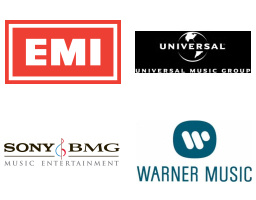 George Van Horn, a senior analyst for IBISWorld, is predicting good news for the music industry, but not necessarily for the big labels that have dominated it for decades. In a recent report he predicts a shrinking role for labels in online music sales despite increasing legal downloads.
George Van Horn, a senior analyst for IBISWorld, is predicting good news for the music industry, but not necessarily for the big labels that have dominated it for decades. In a recent report he predicts a shrinking role for labels in online music sales despite increasing legal downloads.
And the issue isn't simply one of understanding the market either. He also identifies the labels' lack of a diverse product as a liability. He says "The fact that performers make most of their money from merchandise sales and touring, rather than solely CD sales, also helps protect them somewhat, compared to the record companies which are suffering some serious losses."
But surely they the labels are still important for marketing rightt?
Not necessarily according to Van Horn, who asserts "since illegal downloads are not publicized, a new challenge for record companies lies in identifying which music is popular, discouraging companies from investing too heavily in music as a promotional tool."
In addition Van Horn points out "Digital technology makes it easier for artists to dispense with record labels and publishers, to retain the rights to their own music, and distribute it themselves, and this is particularly true for unsigned and alternative acts -- the very acts that come out of nowhere."
Is what's bad for labels good news for artists and consumers? If you prefer to support your favorite artist through concert tickets rather than their label through lawsuits the answer is apparently yes.












